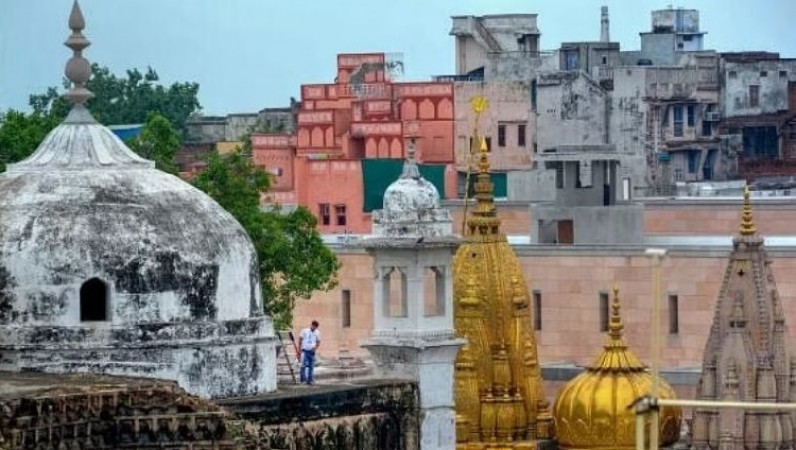
The Allahabad High Court has made a significant decision in the Gyanvapi mosque case, ruling that civil suits filed by Hindu worshippers and deities to reclaim the temple on the mosque premises are not restricted by the Places of Worship Act. This ruling dismisses the challenge posed by the Masjid Committee, as reported by Live Law.
In its judgment, the High Court stated that the Gyanvapi compound could possess either a Muslim or a Hindu character. It directed the trial court to promptly resolve the suit within six months. Moreover, the High Court has granted permission for the Archaeological Survey of India (ASI) to continue its survey of the mosque.
The Allahabad High Court specified that if the lower court deems it necessary to survey any part of the area, it may instruct the ASI to conduct the survey. The Anjuman Intezamia Masajid Committee (AIMC), responsible for managing the Gyanvapi mosque near the Kashi Vishwanath temple in Varanasi, had contested the validity of a suit filed in a Varanasi court. In this suit, Hindu petitioners sought to restore a temple at the site currently occupied by the Gyanvapi mosque.
Both the AIMC and the Uttar Pradesh Sunni Central Waqf Board challenged an April 8, 2021 Varanasi court order, which mandated a comprehensive survey of the Gyanvapi mosque.
Archaeological Survey Report of Gyanvapi Mosque Submitted to Varanasi Court Raises Speculation
Court Extends Deadline as ASI Faces Challenges in Gyanvapi Mosque Complex Examination